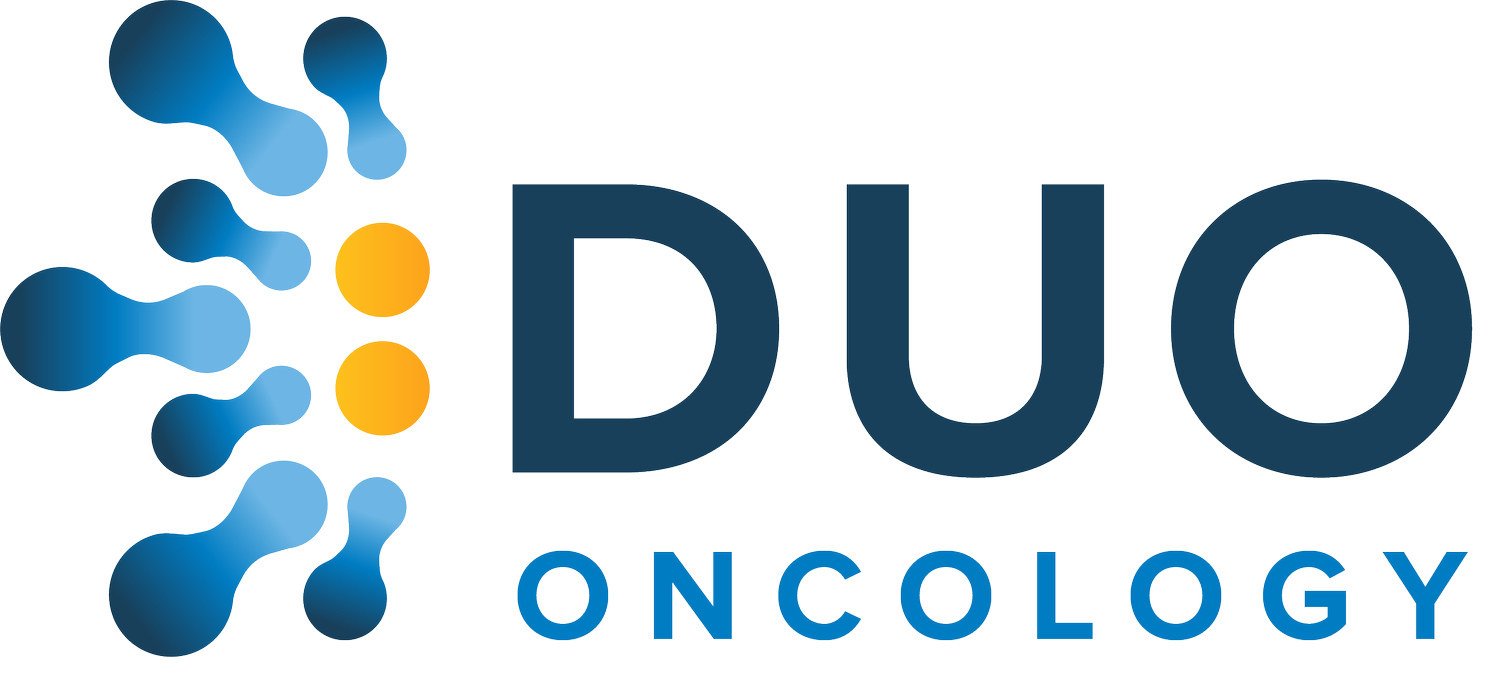Duo Oncology Awarded Grant from the NCI
Duo Oncology, a life science company developing ultra-small cancer nanomedicines, is pleased to announce that the NCI has awarded our company an STTR grant to support the development of its novel chemo/immunotherapy nanomedicine. The funded proposal will optimize and test the safety and efficacy of our second pipeline therapy, DUO-307, which is a combination nanomedicine that delivers cytotoxic polymer conjugated gemcitabine (PGEM) and an immune modulating chemokine receptor type 2 antagonist (CCR2a) to tumor tissue. This unique combination provides anti-tumor therapy through direct cytotoxicity and by stimulating anti-tumor immunity. Preliminary data has demonstrated that the CCR2a blocks the recruitment of suppressive immune cells following tumor cell death and immune activation by PGEM. By turning an immunologically “cold” tumor “hot”, we believe that DUO-307 will provide significant control over tumor growth for hard to treat tumors like pancreatic cancer and hepatocellular carcinoma.
The proposal will investigate three aims. The first aim will focus on optimizing the ratio of PGEM to CCR2a to induce the greatest cytotoxicity in tumor cells while effectively blocking the recruitment of immunosuppressive innate immune cells. This work will be conducted in collaboration with Drs. Lance Munn and Dan Duda from Massachusetts General Hospital using their sophisticated vascularized tumor explant model. The second aim will evaluate the toxicity profile of our optimized formulation. The third and final aim will test the efficacy of our optimized DUO-307 formulation using an orthotopic, clinically relevant model of pancreatic cancer. This final aim will be conducted in collaboration with Drs. Song Li and Jingjing Sun of the University of Pittsburgh, the inventors of the technology.
“We are delighted to announce that the NIH has awarded Duo Oncology STTR funding to further the development of DUO-307,” said Sam Rothstein, CEO and Co-Founder of Duo Oncology. “STTR funding from NCI at the NIH represent an important recognition by our federal scientific agency of the importance of developing new, efficacious treatments for difficult to treat cancers where immune modulating agents are largely ineffective such as pancreatic cancer.”
Pancreatic cancer (PDAC) is the deadliest solid cancer generating almost 496,000 cases worldwide each year and causing over 466,000 deaths. Chemotherapy, particularly a combined regimen, remains the primary treatment option for the 90% of patients with inoperable PDAC. In murine tumors, DUO-307 outperformed existing unformulated chemotherapy combinations and created a favorable tumor immune microenvironment. Moreover DUO-307 sensitized pancreatic tumors to immune checkpoint inhibitor therapy demonstrating exceptional control over tumor growth in all samples.
“We see ultrasmall nanomedicines as an innovative approach to more effectively deliver new chemical entities and novel drug combinations to tumor tissue with the goal of stimulating anti-tumor immunity to recognize and destroy the tumor,” said Dr. Song Li, Director of the Center for Pharmacogenetics at the University of Pittsburgh and Duo Oncology Cofounder. “We are pleased that the NIH sees the potential impact of DUO-307 for immunologically cold tumors to produce dramatic improvement in cancer therapy.”
For more information about Duo Oncology and their ongoing nanomedicine development programs, visit DuoOncology.com.
Research proposed in this publication was supported by the National Cancer Institute of the National Institutes of Health under Award Number R41CA285174. The content is solely the responsibility of the authors and does not necessarily represent the official views of the National Institutes of Health.
# # #
About Duo Oncology: Duo Oncology’s mission is to redefine the treatment landscape for patients with stroma-rich tumors. The company develops high-potency nanomedicines that penetrate through a tumor's stromal tissue to reach growing cancer cells and extend the lives of, or even cure, cancer patients. Duo’s core innovation is a patent pending chemistry that ties together self-assembling DNA-like bases with environmentally sensitive linkers to form ultrasmall nanomedicines, which carry potent combination payloads all the way to growing cancer cells deep within tumors. The company’s lead nanomedicine (DUO-207, now in IND-enabling studies) treats solid tumors that respond to paclitaxel or gemcitabine therapy, such as pancreatic cancer, ovarian cancer, and cholangiocarcinoma. By using known active drug chemistries, DUO-207 offers a streamlined, de-risked development pathway that allows it to begin helping patients years sooner than bespoke therapies. Additional pipeline products use novel active agents to create powerful immunotherapies and precision medicines.
